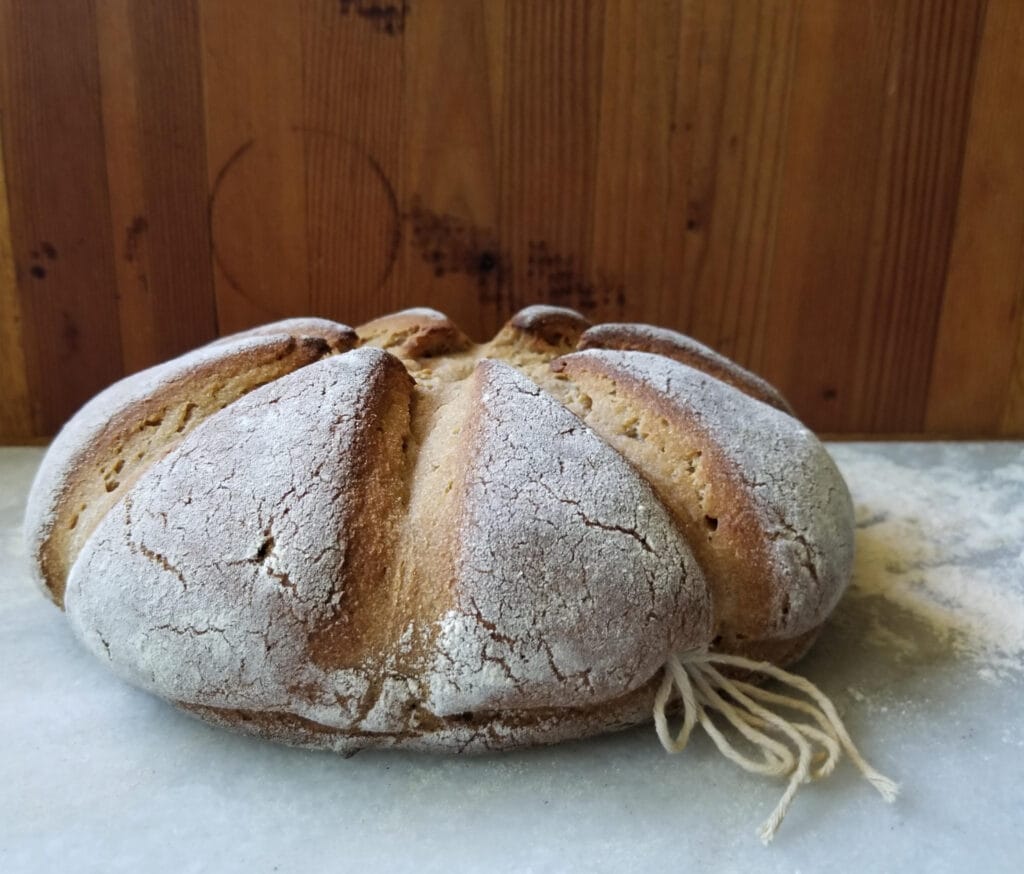By DisinclinedOwl

I present the Panis Quadratus! A truly old recipe dating back to Ancient Rome. Seen often in frescoes and sculpture, and in specimens of carbonized loaves from Pompeii and Herculaneum.
I attended a webinar hosted by Excellence Through Classics and presented by Farrell Monaco on the history of bread in Ancient Rome, and it included a bread baking portion!
Recipe here:
Ingredients for dough:
800 gr (6 cups) of whole wheat or spelt flour;
500 gr (2+1/4 cups of water)*
10 gr (2 tsp) salt
Additional flour on hand for dusting
*Water amount will depend on the coarseness of the flour used. Coarser flour will absorb more water.
Implements:
Kitchen twine or string Sharp knife Baking sheet or baking stone
Instructions:
Make the dough a day or two before baking
Once mixed into a low hydration ball of dough, let is rest.
Place the dough in a closed or air-tight container and leave it rest on the counter, not in the fridge.
Knead the dough twice a day for a few minutes. Keep it covered during resting periods.
On the day of baking, shape the loaf into a round boule and press to flatten a little. Tie kitchen twine around the circumference to make a “waist” that remains on through baking. Let rest for an hour or two. Just prior to baking, dust the top with flour and use a strand of twine to make four deep indentations. Bake at 350-400F for 45-60 minutes, until the dough reaches an internal temp of 190-200F.
